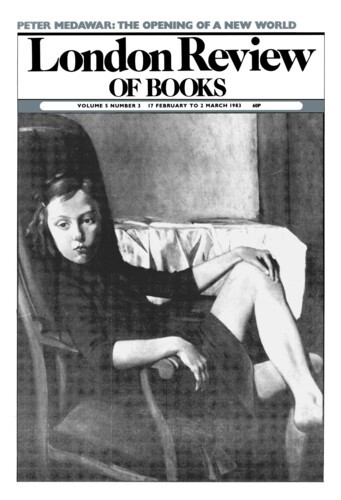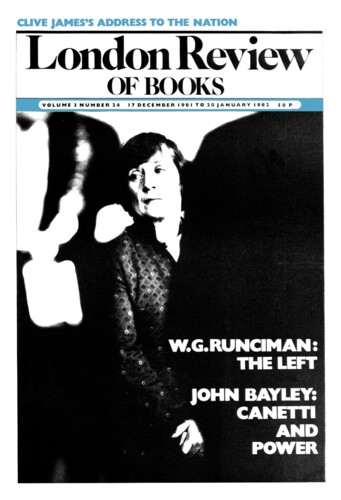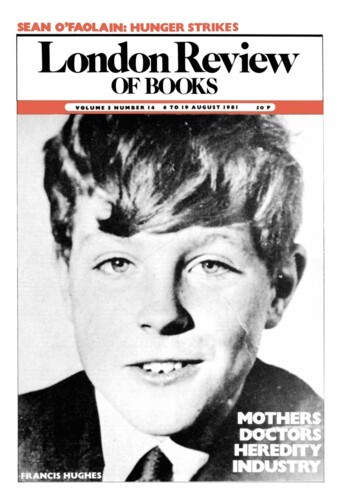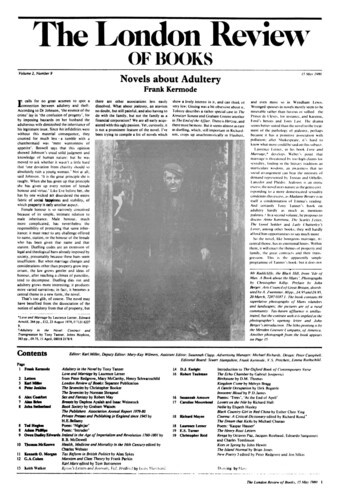Was she nice?
Thomas McKeown, 17 February 1983
A reassessment of Florence Nightingale and her achievements requires consideration of her public work, her personal character and the relation between the two, and F.B. Smith has interesting things to say about all of this in his study of the Nightingale Papers and other documents. He recognises her impressive contributions, but not her unique place in the history of ideas related to medicine and public health in the last three centuries. His reading of her character would be more persuasive if she were occasionally given the benefit of a doubt. Was she, for instance, always impelled ‘to fight, to cheat, to bully and to boast’ as well as ‘to save lives’? And is it not the case that without the private character we could not have had the public work?





